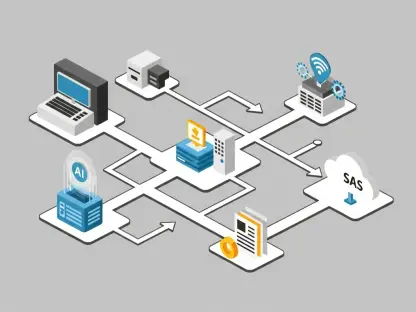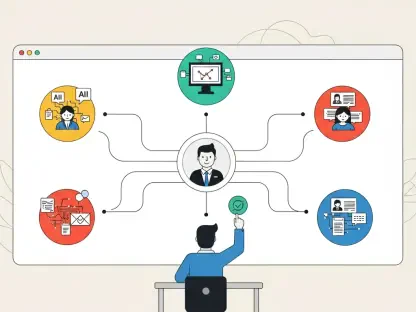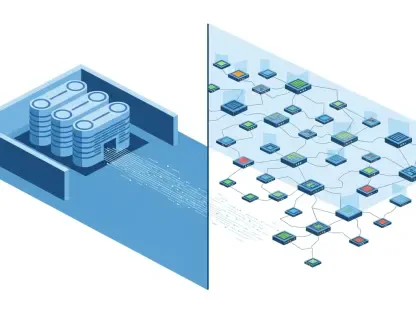In today’s fast-paced corporate landscape, where digital tools evolve at breakneck speed, a staggering 70% of employees report frustration with software adoption due to inadequate support, highlighting a critical gap in enterprise systems. Picture a mid-level manager grappling with a complex CRM platform, deadlines looming, and no IT specialist available for immediate help. Traditional support channels often fall short, leaving workers stranded. Enter a game-changer: eSelf’s AI avatars, photorealistic digital assistants that don’t just talk but actively see and solve problems in real time. This technology promises to bridge the gap between overwhelmed support systems and the urgent needs of modern enterprises.
Why This Matters in Today’s Business World
The significance of this innovation cannot be overstated. As companies race to embrace digital transformation, the strain on support infrastructure grows exponentially. Inefficient training, language barriers, and overburdened IT teams create bottlenecks that cost businesses millions in lost productivity annually. eSelf’s AI avatars offer a lifeline, delivering personalized, on-demand assistance that scales with organizational needs. This isn’t just about solving technical glitches; it’s about empowering workforces and reshaping how enterprises approach support and education in a hyper-connected era.
The Dawn of Visual AI: Seeing Beyond the Screen
At the heart of this transformation lies eSelf’s groundbreaking Share Screen Analysis feature. Unlike standard chatbots limited to text or voice, these avatars analyze on-screen content instantly, providing context-aware guidance. Imagine an employee struggling with a data entry error in a financial tool; the avatar identifies the issue on the shared screen and walks through the fix step by step. This visual intelligence marks a leap forward, turning passive support into an interactive experience akin to having a mentor over the shoulder.
This capability extends far beyond simple troubleshooting. In educational settings, avatars tutor students by dissecting complex problems—like solving quadratic equations—directly on their screens. A national pilot in Israel, involving 10,000 students for Hebrew language instruction, showcases this potential. Partnered with the Center for Educational Technology and advised by Harvard University, the program highlights how such technology can personalize learning at scale, addressing disparities in resource access.
Tackling Enterprise Challenges Head-On
Enterprise support systems face mounting pressures in an age of globalization and rapid tech adoption. Call centers often grapple with language inconsistencies, while IT departments struggle to keep pace with ticket volumes. Digital transformation demands solutions that not only streamline operations but also maintain a human touch for diverse workforces. The urgency for efficient, accessible tools has never been clearer, spanning corporate offices to university lecture halls.
eSelf’s technology emerges as a timely answer to these hurdles. By enabling avatars to switch languages seamlessly—such as from English to Japanese during a support session—it dismantles communication barriers that plague traditional systems. Moreover, the ability to deploy these avatars in just five minutes, using a mere three lines of JavaScript, ensures that businesses can integrate support without the burden of lengthy setup processes or specialized training.
Inside the Tech: Features Driving Real Impact
Diving deeper into the mechanics, the versatility of eSelf’s AI avatars becomes evident through specific applications. For instance, guiding employees through intricate CRM software navigation demonstrates precision in professional contexts, while tutoring students on math concepts reveals adaptability in academia. These use cases underscore a broad applicability, catering to industries with distinct yet overlapping needs for hands-on assistance.
Privacy remains a cornerstone of this technology, especially in sensitive enterprise environments. Built-in safeguards prevent avatars from engaging with personally identifiable information on shared screens, fostering trust among users handling confidential data. Additionally, the multilingual prowess and rapid integration process amplify accessibility, ensuring that global teams and varied institutions can adopt the solution without logistical friction. The Israel pilot serves as tangible proof, with plans to expand subject coverage in the coming years from 2025 onward.
Expert Perspectives on Augmentation, Not Replacement
Insights from eSelf’s leadership provide clarity on the strategic vision behind this innovation. CEO Alan Bekker emphasizes, “The goal is augmentation, not replacement—our avatars enhance human capabilities, freeing staff for higher-value tasks.” This philosophy positions the technology as a partner to workers, not a threat, aligning with broader trends of responsible AI deployment in business settings.
Academic voices further validate this approach. Victor Pereira from Harvard University, an adviser to eSelf’s educational initiatives, notes, “AI can democratize learning by supporting educators, not sidelining them, ensuring students gain independence through tailored guidance.” Bekker’s track record, including the $70 million acquisition of his previous venture Voca.ai by Snap, adds weight to confidence in eSelf’s direction. These perspectives collectively frame the avatars as enablers of human potential across multiple domains.
A Roadmap for Businesses to Embrace AI Support
For enterprises ready to adopt this technology, a practical framework begins with pinpointing critical pain points, such as delays in customer service or gaps in onboarding processes. Identifying these areas ensures that deployment targets specific inefficiencies, maximizing immediate impact. The next step involves a straightforward integration: embedding minimal code and uploading relevant documentation or FAQs to activate avatars within minutes.
Customization plays a vital role in optimizing outcomes. Tailoring avatars to distinct functions—like IT troubleshooting or new hire training—enhances relevance and efficiency for end users. Starting with eSelf’s free pricing tier allows businesses to test capabilities before committing to enterprise plans that offer unlimited interactions and bespoke integrations. Continuous monitoring of performance metrics and user feedback further refines the system, aligning it closely with evolving organizational demands.
Reflecting on a Transformative Shift
Looking back, eSelf’s AI avatars redefined the boundaries of enterprise support by addressing long-standing inefficiencies with cutting-edge interactivity. Their ability to see and respond to on-screen content in real time marked a pivotal shift, empowering employees and students alike with personalized guidance. The seamless language support and privacy protections cemented trust, while rapid deployment made adoption a reality for businesses of all sizes.
As industries continue to evolve, the next steps involve exploring how such technology could further integrate into daily workflows, potentially with features like direct desktop control. Enterprises are encouraged to pilot these solutions, leveraging free tiers to assess fit before scaling. Educational institutions, inspired by initiatives like the Israel program, also have a clear path to amplify learning through AI partnerships. This journey signals a broader movement toward smarter, more human-centric support systems, setting a foundation for sustained innovation.









